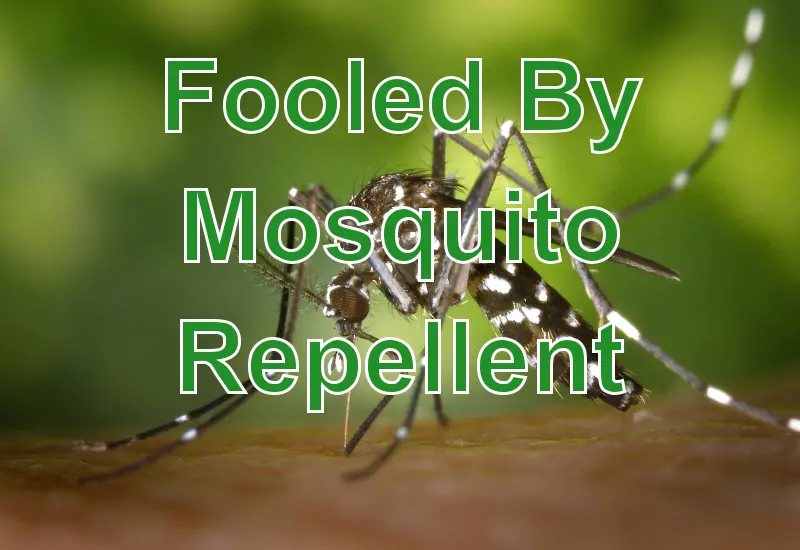Avoid Being Fooled By Mosquito Repellent

Contents
The world of mosquito repellents is a well full of myths, legends, and marketing, a lot of marketing. A place where ignorance, scams, and traditional remedies reign. And where, often, the best remedy seems to be to sleep with our fingers crossed so that when we get up we don’t have a body full of bites.
That is why we have asked ourselves, what does science say about all this? Is there anything we can do to repel mosquitoes or simply get used to the idea that bites are here to stay?
Most People Don’t Know How To Protect Themselves From Mosquitoes
It’s a harsh truth, but the first step is acknowledging it. Last year Spectrum Brands published a survey on the public’s knowledge of insect repellents. And it’s horrible.
I clarify that the survey is not representative. He intended to find out the patterns of anti-mosquito protection in areas at risk of Zika infection (and other diseases transmitted by insects). However, it can help us get an idea of what really happens on hot summer nights.
And what happens? Well, even in places where mosquitoes carry diseases that can kill us, the use of repellents does not exceed 20%. It seems like a minimum figure, but it is even more so if we take into account that 82% use products that are not effective at all. That is, a very considerable part of those who use repellents use ineffective methods. Hunger is combined with the desire to eat.
How Do Repellents Work?
A good part of these figures is because the operation of repellents is very unknown among the general population. In principle, there are three chemical compounds that we humans produce that attract mosquitoes: lactic acid and octanol that we produce and secrete through our skin, and carbon dioxide that we exhale when we breathe.
These compounds (along with heat and certain optical stimuli) serve as chemical signals that help mosquitoes orient themselves and locate their victims. Of course, although not all species of mosquitoes work the same, the mechanisms of action of the repellents touch the “right keys” for all of them.
Those keys are your receptors. Incredible as it may seem, the most effective repellents do nothing for mosquitoes. In the case of both DEET and Icaridin, the mechanism of action disorients insects and alters their receptors so that they cannot locate people.
That explains why, even when using these repellents, mosquitoes can bite you: the product does not make insects flee, it “makes us invisible” to them. But if by chance they do catch us, there’s nothing to stop them from having a feast.
These two compounds seem quite safe. DEET can cause skin rashes and, in high concentrations, dissolves plastic. Icaridin (the current compound of the well-known Autan) has no side effects other than mild skin irritation. Neither is recommended for very young children.
Other Ways To Fight Mosquitoes
On the other hand, we have compounds that are classified as biopesticides: that is, they are pure and simple insecticides that affect the nervous system of insects. There we can find IR3535 or permethrin. In small concentrations both are safe, but permethrin for insecticide use, for example, should not be sprayed directly on the skin.
There are also ‘natural repellents such as citronella and, above all, eucalyptus essential oils. Citronella is very popular, but the available research indicates that the effects (when they exist) are very small. Eucalyptus oil gives better results and is recommended (along with other repellents) by the North American CDC.
Nobody says that traditional remedies have no effect, however, it is not advisable to trust them
In recent years, ‘ultrasonic repellents’ and other gadgets have emerged that are unable to prove their worth in independent tests. The recommendation of the experts is not to trust too much because it is most likely that they simply will not work.
The same goes for almost all other traditional remedies. There is always the possibility that they have some kind of effect on mosquitoes, but it is not advisable to trust them too much. Above all, in areas where bites can cause health problems.
The Perfect Repellent
Experts generally agree that a combination of DEET, Icardin, and eucalyptus oils (along with an insecticide from time to time) would be ideal. They are the safest and most effective repellents. However, many things can be done to reduce the number of bites.
The first thing is to try to reduce the number of mosquitoes through ‘environmental control’. The fewer insects, the less likely you are to be a victim of their bites. It is very important to try to eliminate any areas of standing water and, where possible, use mosquito nets.
And then, I know, to use repellents with common sense and follow the instructions. We must not forget that, above any other, the most dangerous animal on earth is the mosquito. He is directly responsible for the deaths of 725,000 people each year. There are safer areas due to their climate, but we should never underestimate them.
ABOUT ecoGnome
Leading a sustainable lifestyle means wholeheartedly embracing respect for the environment and making a positive impact for people and the planet.
Click to read on